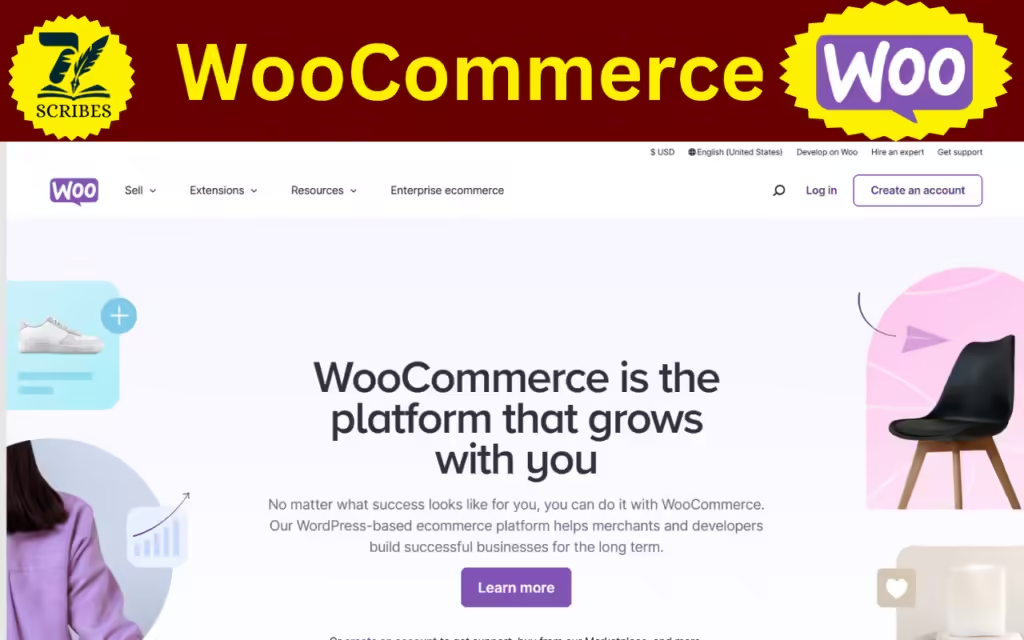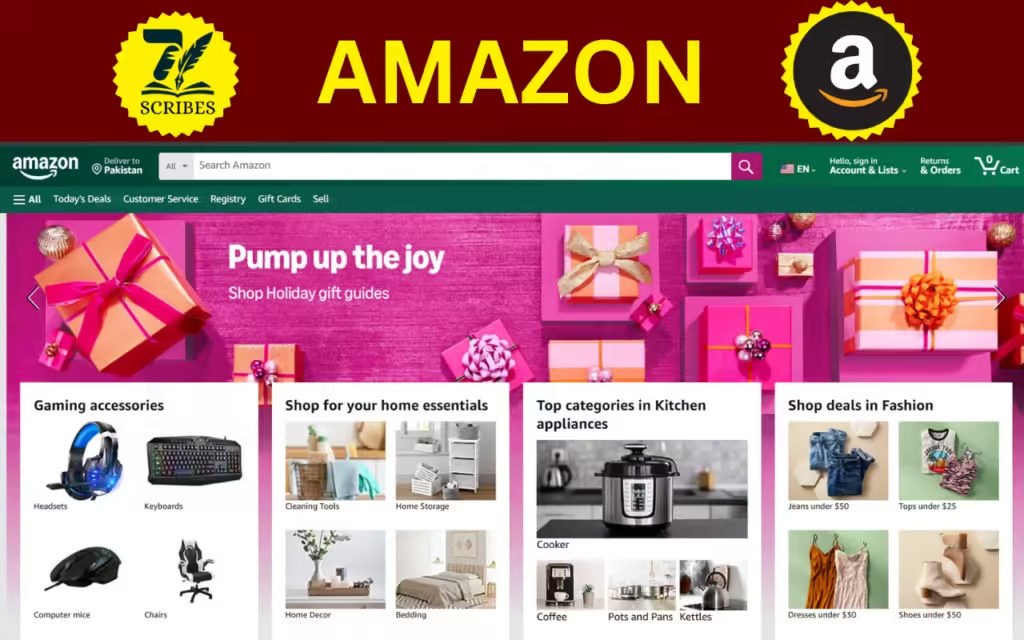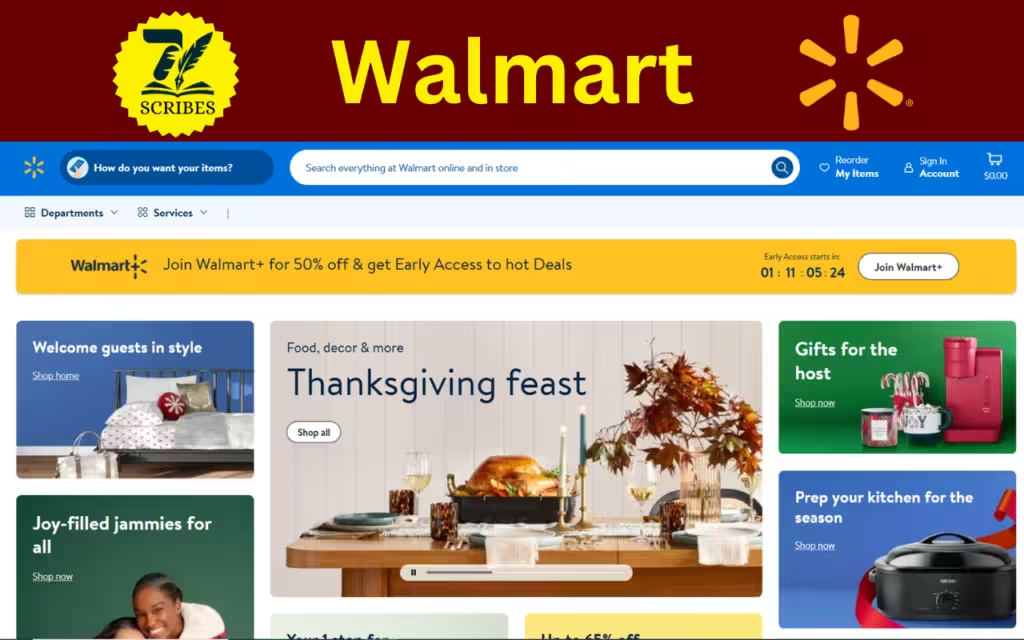At the end of this blog post, you will know exactly which e-commerce platform you should use to create your online store because we’re going to go over the pros and cons of every single e-commerce platform in this post.
The Growth of E-commerce
Last year, over six trillion dollars was spent on online websites, and e-commerce is growing like crazy. However, e-commerce only makes up 15% of all retail sales, which means that right now is the perfect time to start your online store because there’s still a ton of room to grow. By the end of this year, it’s expected that 65% of all Americans will purchase something online.
Why You Need an E-commerce Platform
If you want to be one of the millions of people making money online, you’re going to need to create a website. In this post, we’re going to tell you exactly which platform you should use.
Shopify
Let’s start with Shopify, one of the most popular e-commerce platforms out there, though it’s not actually the most popular. The most popular e-commerce platform is WooCommerce. However, Shopify is the most popular platform for professional e-commerce sellers because it’s built from the ground up to support e-commerce.

Visit Shopify by clicking here.
Pros of Shopify
- Shopify offers 24/7 support.
- You can choose from a ton of different free or paid themes to make your site look beautiful.
- It’s the easiest e-commerce platform to set up; in fact, you can create an online store using Shopify in just four minutes.
- Shopify includes a free 14-day trial when you use the link below, and you also get a free SSL certificate to ensure your website is secure for online payments.
- Shopify has a wide range of apps, plugins, and integrations, so whatever you want your website to do, there’s probably already an app out there for it.
Cons of Shopify
- It can be kind of expensive, starting at $29 a month for the most basic plan and going up from there.
- Additional costs for apps, plugins, or different integrations.
- Limited customization for the product and checkout pages.
- Although Shopify offers 24/7 support, the quality of that support has declined over the last few years.
WooCommerce
If you’re looking for a cheaper option than Shopify, stay tuned for WooCommerce. WooCommerce is a free e-commerce platform.

Pros of WooCommerce
- It’s free to use, though you’ll need to pay for hosting.
- Hosting for WooCommerce is very affordable, with options like Hostinger costing between $2 to $3 a month using the link below, plus an extra 10% off with a special coupon code.
- WooCommerce is the most popular e-commerce platform globally, offering the biggest library of plugins.
- Easy setup, taking only about five minutes to create your store.
- A wide variety of free, mobile-friendly templates to choose from.
- Fully customizable, allowing you to change anything on your site.
Cons of WooCommerce
- Not the most user-friendly platform. It’s easy to set up, but deeper code customizations may require professional help.
- Some basic features are missing, so you might need to install multiple plugins.
- Less professional than platforms like Shopify, with lower-quality technical support.
- Managing hosting can make fixing issues more complicated.
Visit WooCommerce by clicking here.
Other Platforms Overview
Squarespace
- Squarespace helps build beautiful websites with a large selection of designer-made templates.
- Offers 24/7 customer support.
- Cons: Not built with e-commerce in mind; limited plugins and apps; missing many features expected by e-commerce store owners.
- Cost: Starts at $16 a month. Recommended only for artists or creators selling simple items.
Wix
- Easy to start and set up with a relatively large app marketplace and good security.
- Cons: Initially a website builder with added e-commerce functionality; lacks essential features for e-commerce store owners.
GoDaddy
- Affordable domain names but not recommended for hosting an online store.
- Cons: Overpriced and lacks the features and functionality of other platforms.
Big Cartel
- Free for up to five products.
- Pros: Simple for small stores, great for artists and creatives.
- Cons: Limited features and integrations; moving to a more professional platform later can be challenging; lacks 24/7 chat or phone support.
BigCommerce
- Once popular, it now caters only to medium and large businesses.
- Recommendation: Not suitable for small businesses or individual sellers.
Magento (Adobe Commerce)
- Pros: Highly customizable.
- Cons: Complex and requires a designer or developer; not recommended for most users.
Amazon
Amazon presents a significant opportunity for making money online as a one-trillion-dollar company with over $500 billion in annual sales. About 50% of all e-commerce sales happen on Amazon, making it the easiest way to build a passive income business.

Pros of Amazon
- Huge built-in customer base, reducing the need for marketing.
- Simple to sign up and set up with just a product page.
- Offers great sales potential—40% of sellers have made over $100,000.
Cons of Amazon
- High competition, with over nine million sellers and 4,000 new sellers joining daily.
- Note: Only around 2 million are active sellers, and of those, over 40% have made at least $100,000.
Visit Amazon by clicking here.
Walmart.com
Walmart.com is growing rapidly, with over $50 billion in annual online sales.

Pros of Walmart.com
- High potential for growth into physical retail stores.
- No monthly subscription fee; charges a percentage of sales.
Cons of Walmart.com
- Smaller market share compared to Amazon (6.3% of e-commerce sales).
Visit Walmart by clicking here.
Other Platforms (eBay, Etsy)
These platforms offer an easier path to initial sales due to existing customer bases.
- Fees for sales on these platforms.
- Risk of being removed from the platform without owning your store, unlike self-hosted sites like Shopify or WooCommerce.
Conclusion
Choosing the right e-commerce platform is all about understanding your unique needs, budget, and long-term goals. If you’re looking for a user-friendly, all-in-one solution, Shopify is a reliable choice, especially for serious sellers who value ease of use and strong support, even if it comes with a higher price tag.
However, WooCommerce is famous for being both flexible and cost-effective, which makes it ideal for people who feel comfortable handling some technical aspects on their own. Platforms like Squarespace, Wix, and Big Cartel provide simple, attractive options for artists and small-scale sellers, but they might not have all the features required for a more comprehensive online store.
Although there is lots of competition and less control over one’s business, Amazon and Walmart.com offer great opportunities for people who want access to large customer bases.
Your priorities, whether cost, efficiency, customization, or ease of use, will ultimately determine which platform is best for your e-commerce activities. If you take the time to consider the advantages and disadvantages, you can confidently launch your online store and take advantage of the rapidly growing e-commerce market.
If you want to know more online earning ways or tools to maximize your online earnings, check the following posts:
Top Best Blogging Tools for Beginners
5 Best Methods to Make Money with AI Tools
Top 10 Best Online Earning Websites